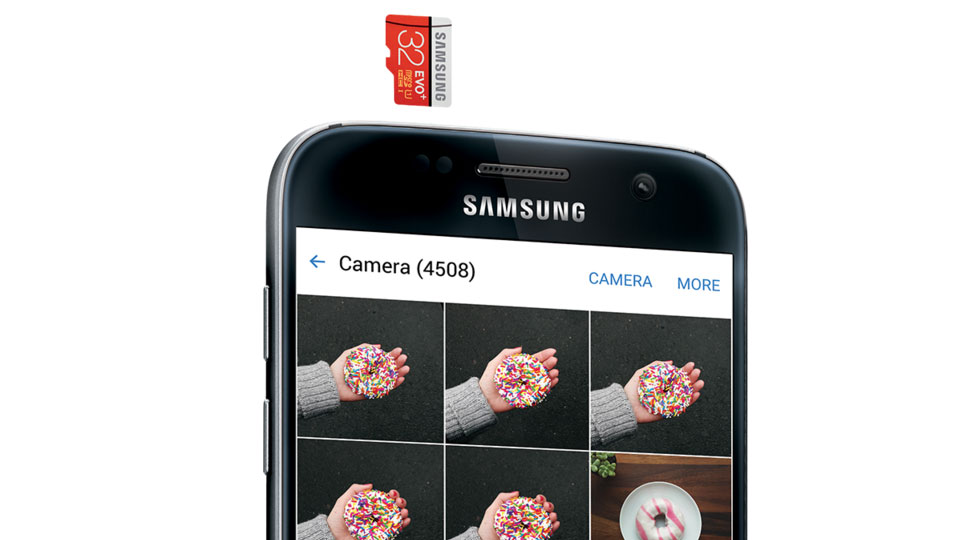Why Samsung dropped microSD on the Galaxy S6, then brought it back
It wasn't up to scratch

The Samsung Galaxy S6 was a critical hit for the South Korean brand, but dropped one of the big things that fans loved: the microSD slot.
Its return on the Galaxy S7 has been lauded as a boost for the new phone, but why did it disappear in the first place when so many other brands, like LG, Sony and HTC, managed to keep it as a key part of their flagship phones?
"At the time we launched the S6, we upgraded all the performance within the device. We upgraded to UFS 2.0, we upgraded to DDR4 RAM… we believed that having a memory card slot would slow down the performance of the device," said Kyle Brown, head of technology, content and launch management at Samsung.
"Thankfully on the S7 we've managed to get the best of both worlds."
About face
The brand launched the S6 with multiple options of internal storage capacity, but that forced the price of the phone up dramatically if you fancied the 128GB Galaxy S6, with many commenters claiming that Samsung was just trying to ape Apple in the way it sold phones.
However, Brown said that it was merely a performance decision, although he didn't comment on why other brands were able to make the technology work, stating that Samsung 'weighed up the pros and cons' of what to include in the device and wanted to make sure design, along with performance, was brought to the fore.
"A lot of people were very disappointed we didn't have a [memory card] slot in the S6, and [its return] has been one of the most positive reactions to the S7. We're really proud of what managed to achieve, adding a microSD slot and water resistive IP68 rating. It's a really massive achievement for engineers."
Get daily insight, inspiration and deals in your inbox
Sign up for breaking news, reviews, opinion, top tech deals, and more.

Gareth has been part of the consumer technology world in a career spanning three decades. He started life as a staff writer on the fledgling TechRadar, and has grew with the site (primarily as phones, tablets and wearables editor) until becoming Global Editor in Chief in 2018. Gareth has written over 4,000 articles for TechRadar, has contributed expert insight to a number of other publications, chaired panels on zeitgeist technologies, presented at the Gadget Show Live as well as representing the brand on TV and radio for multiple channels including Sky, BBC, ITV and Al-Jazeera. Passionate about fitness, he can bore anyone rigid about stress management, sleep tracking, heart rate variance as well as bemoaning something about the latest iPhone, Galaxy or OLED TV.